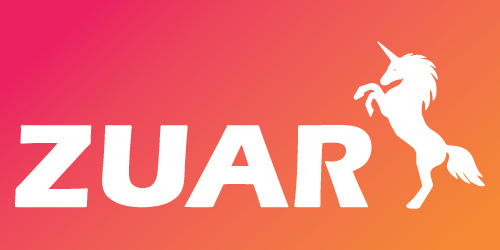How to Monetize My Data? Examples, Tools & More
Learn how to monetize your data. We'll show you how you can maximize the value of your data through direct and indirect data monetization.
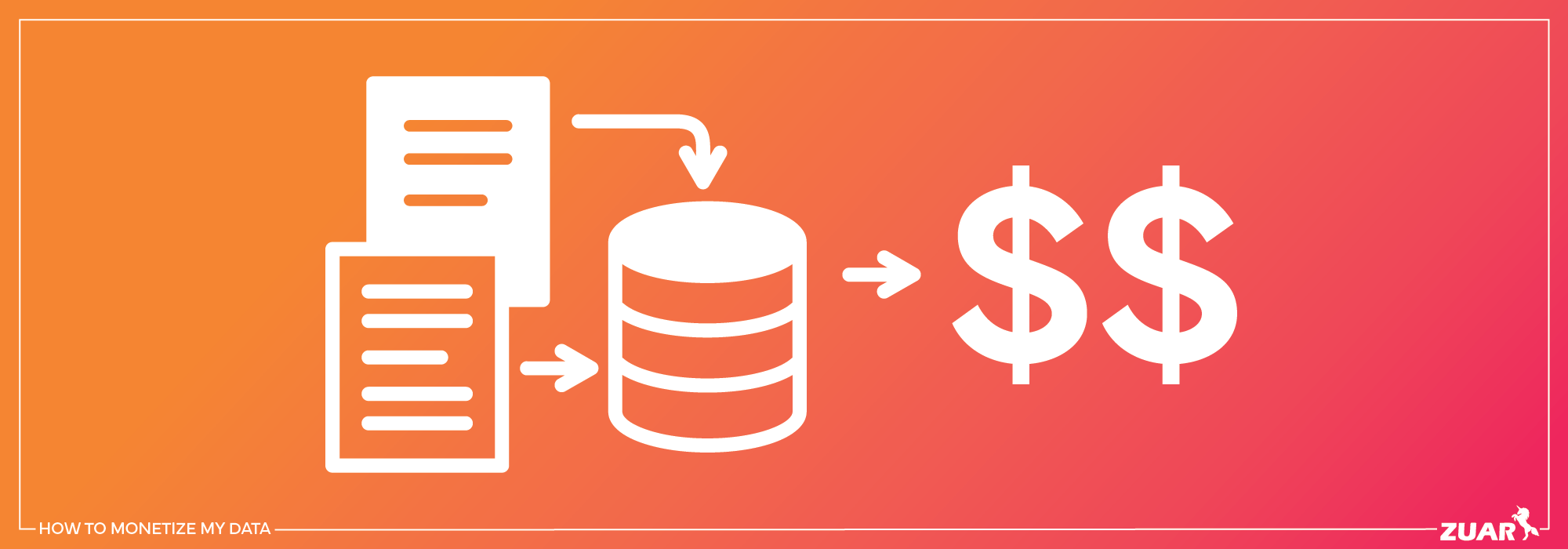
Overview
Did you know that your organization’s data can be a gold mine of opportunities? With the right approach, you can unlock its value and generate significant revenue.
In this article, we’ll explore the world of data monetization and provide practical strategies for maximizing its potential, focusing on how to monetize data.
Key Takeaways
- Data monetization is the process of leveraging data to generate revenue and optimize business operations.
- There are two approaches for data monetization: direct and indirect, with immense value potential.
- Organizations can maximize their data monetization opportunities by focusing on high-impact opportunities, collaborating with external partners, assessing assets, and identifying revenue streams.

Understanding Data Monetization
So what is data monetization? Data monetization is the process of leveraging data to generate revenue, either directly by selling it or indirectly by using it to optimize business operations.
It’s a vital component of modern business strategies, as it enables organizations to maximize the value of their data, both internally and externally, resulting in increased profits and reduced costs.
Monetizing data successfully requires obtaining stakeholder approval and developing a concerted effort to build a platform or tool that amalgamates and assesses the gathered information.
Data monetization relies on data analytics to generate insights and value from collected data, either for internal optimization or external sales.
The subsequent sections will investigate various types of data monetization strategies, explore the significance of data, and provide useful advice for identifying and exploiting data monetization opportunities.
Direct vs Indirect Data Monetization
In the realm of data monetization, there are two primary forms: direct and indirect. Direct data monetization involves selling data sets, providing insights as a service, or offering data-driven products and services to other organizations.
This approach gives businesses a competitive advantage by generating additional revenue streams and offering data as a service.
On the other hand, indirect data monetization focuses on using data to improve internal processes and decision-making. This can lead to measurable business performance improvements, such as optimizing operations, informing decision-making, and generating new revenue streams.
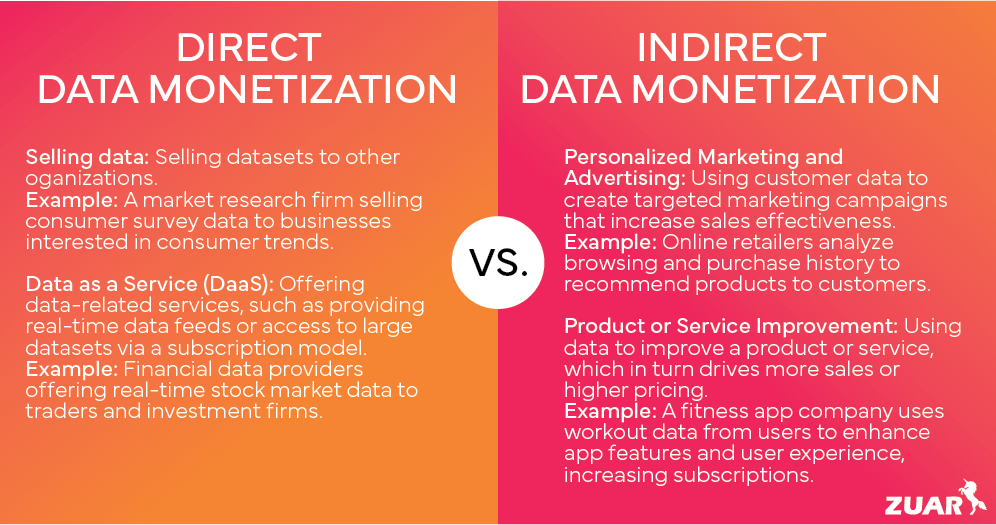
Both direct and indirect data monetization methods have their unique advantages and can help organizations unlock the full potential of their data assets.
The Value of Data
The value of data lies in its ability to provide insights, drive decision-making, and create new revenue streams for businesses. Data can be utilized to inform pricing, product recommendations, marketing campaigns, and investment decisions, among other strategies.
Implementing a data strategy with a product-oriented approach to data management can help maximize its value.
Hear from Zuar's CEO, Whitney Myers, on how to unlock revenue through data:

Identifying Opportunities for Data Monetization
Prior to starting the process of data monetization, evaluating the value of existing data and identifying potential revenue streams is of utmost importance. This involves assessing your data assets and understanding the various ways in which data can generate income, either internally or externally.
The subsequent subsections will cover the process of evaluating your data assets and identifying potential revenue streams, thereby laying a strong foundation for your data monetization initiatives.
Assessing Your Data Assets
Assessing your data assets involves evaluating the quality, relevance, and potential value of your data. This process helps organizations determine which data is of value and which data requires additional resources.
By understanding the worth of your data assets, you can make informed decisions on how to prioritize and focus your data monetization efforts, ensuring the best possible return on investment.
Recognizing Potential Revenue Streams
Recognizing potential revenue streams entails comprehending how data can be utilized to generate revenue, either internally or externally. Data monetization opportunities include:
- Selling data sets
- Utilizing upselling or cross-selling opportunities
- Segmenting customer databases
- Optimizing processes and business costs
- Enhancing existing products
- Developing new products or services
To pinpoint and leverage these opportunities, decision-makers should consider potential prospects for data points currently not being measured, both within the organization and across their industry.

Implementing a Successful Data Monetization Strategy
Now that we’ve discussed the importance of understanding data monetization and identifying potential revenue streams, it’s time to explore the implementation of a successful data monetization strategy.
This involves defining your goals and objectives, choosing the right analytics tools, and building a data-driven culture within your organization.
The subsequent subsections will delve into each of these critical components and offer practical advice for successfully implementing a data monetization strategy.
Defining Your Goals and Objectives
Setting clear goals and objectives is critical to steer your data monetization efforts and align them with your overarching business strategy. Common goals and objectives for data monetization include:
- Maximizing revenue streams
- Optimizing key business goals
- Transforming data into revenue
- Fostering creativity
- Generating new revenue through data and analytics initiatives
By establishing clear goals and objectives, you can efficiently allocate resources and prioritize data monetization efforts to achieve maximum success.
Choosing the Right Analytics Tools
Choosing the right analytics tools, including a suitable data monetization tool, is crucial for extracting valuable insights from your data and ensuring successful data monetization.

These data monetization tools can take raw data and extract actionable insights and advanced analytics, enabling businesses to make well-informed decisions based on their data.
Despite the abundance of analytics tools available, it’s important to select the tool that best suits your organization’s specific needs and objectives. This may involve evaluating the tool’s:
- capabilities
- ease of use
- scalability
- data integration options
By investing in the right analytics tools, including embedded analytics, you can unlock the full potential of your data and drive your data monetization efforts forward.
Building a Data-Driven Culture
A data-driven culture is essential for any successful data monetization strategy, as it promotes the use of data and analytics to inform decisions and guide business operations. Developing a data-driven culture requires:
- Engaging stakeholders from multiple departments
- Adopting a multidisciplinary approach
- Regarding data as a resource to be shared and utilized by all members of the organization
Some notable examples of successful data-driven cultures include Amazon, Google, and Microsoft.
These companies have all adopted data-driven decision-making and have achieved considerable success as a result. By fostering a data-driven culture within your organization, you can ensure that your data monetization efforts are supported and championed by all stakeholders.

Managing Risks and Challenges in Data Monetization
While data monetization presents numerous opportunities for organizations, it also comes with its fair share of risks and challenges. This section will address the main obstacles to data monetization, such as ensuring data privacy and compliance, and tackling technological and organizational challenges.
By effectively managing these risks and challenges, you can ensure the success of your data monetization efforts.
Ensuring Data Privacy and Compliance
Data privacy, compliance, and data sharing are crucial aspects of data monetization, as they involve adhering to relevant regulations and maintaining the trust of your customers and partners.
Compliance with relevant regulations is vital to ensure that data collection, retention, and usage adhere to legal requirements and protect individual privacy. Examples of data privacy regulations include GDPR and CCPA.
By ensuring data privacy and compliance, you can build and maintain trust with your customers and partners, which is imperative for a successful data monetization strategy.
Overcoming Technological and Organizational Hurdles
Technological and organizational hurdles are among the key challenges to data monetization efforts. Technological obstacles include data silos, lack of expertise, and scalability issues.
Addressing these challenges may involve implementing data integration and data governance strategies to tackle data silos, hiring data professionals or outsourcing data services to address the lack of expertise, and ensuring your organization has the resources and infrastructure to scale as needed.
Organizational obstacles, on the other hand, comprise resistance to change and a lack of understanding of the value of data. To overcome these challenges, it’s important to:
- Educate stakeholders on the value of data and the potential benefits of data monetization
- Foster a culture that embraces data-driven decision-making
By doing so, you can overcome organizational obstacles and successfully monetize your data.

Real-World Examples of Successful Data Monetization
To gain a deeper understanding of data monetization potential, we will examine real-world case studies of companies that have successfully monetized their data.
In the following subsections, we’ll discuss three specific external data monetization examples: management consulting insights, e-commerce personalization, and telecommunications-targeted advertising.
These examples showcase how businesses across various industries can leverage data to generate revenue and improve customer experiences.
Management Consulting Insights
Management consulting firm, Positive Insights, specializes in measuring and forecasting business performance for its clients.
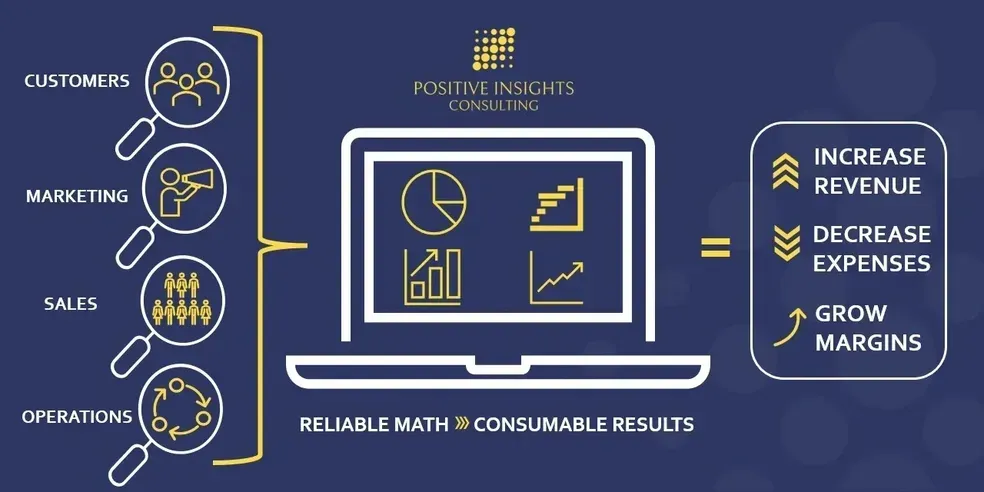
Positive Insights uses data-driven insights to make better-informed decisions that drive revenue. They were able to use Zuar's data pipeline solution, Zuar Runner, to automate the flow of data from various disparate systems to efficiently centralize and streamline their data processes.
Additionally, by implementing Zuar Portal, they were able to monetize their data by providing data as a service to their clients. This enabled their clients to easily access actionable insights through a convenient data portal that was fully customized to match Positive Insights' branding.
Through both direct and indirect data monetization, Positive Insights is able to capitalize on the value of their data assets, creating new revenue streams and enhancing their business strategies with data-driven insights.
Learn more about this data monetization success story and hear from the Owner and CEO:
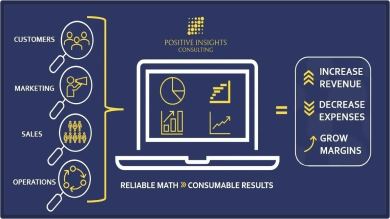
E-commerce and Personalization
E-commerce companies, such as Amazon and Shopify, use customer data to personalize their platforms, leading to increased revenue through improved customer experiences.
By analyzing customer behavior, preferences, and purchase history, these companies can provide tailored product recommendations, customized content, and targeted promotions.
This personalized approach not only enhances customer engagement but also drives customer loyalty and sales, showcasing the power of data monetization in the FMCG e-commerce industry.
Telecommunications and Targeted Advertising
Telecommunications companies, such as Verizon and AT&T, monetize data by using it to deliver targeted advertising, generating additional revenue streams.
These companies accumulate large amounts of data from their clients, including call records, location data, and browsing habits. By leveraging this data, they can provide targeted ads based on customer interests and behavior, leading to increased ad revenue and customer satisfaction.
This example demonstrates how internal data monetization and data monetization capability can be applied in the telecommunications industry to unlock new opportunities and drive growth.

Tips for Maximizing Data Monetization Potential
Having explored the realm of data monetization, it’s worthwhile to consider some practical tips for maximizing its potential. In this section, we’ll discuss two key tips: focusing on high-impact opportunities and collaborating with external partners.
Focusing on High-Impact Opportunities
High-impact opportunities for data monetization may include:
- Optimizing workflows
- Providing data-driven experiences with products
- Offering data-based solutions
- Leveraging targeted marketing for upselling or cross-selling
- Optimizing supply chain planning
- Sharpening marketing strategies
- Recognizing new prospective customers or markets
- Strengthening business partnerships or customer loyalty
By identifying and prioritizing these high-impact opportunities, you can ensure that your data monetization efforts have the greatest potential to generate revenue or improve business operations.
Collaborating With External Partners
Collaborating with internal and external stakeholders can help to unlock new data monetization opportunities and expand your organization’s capabilities.
By leveraging the resources and expertise of external partners, you can gain access to new data sources, new technologies, and the expertise of experienced professionals.
This collaboration can also help to strengthen ties with brands, amplify business for partner brands, and access novel markets and income generation possibilities.
By forming strategic partnerships, your organization can maximize its data monetization potential and drive long-term success.
For a more in-depth discussion of data monetization, check out our webinar about how to drive revenue with data:


Data Monetization: Getting Started
As we've illustrated, data monetization presents a wealth of opportunities for organizations to generate revenue and optimize their operations.
By understanding the different types of data monetization, assessing your data assets, recognizing potential revenue streams, implementing a successful data monetization strategy, and managing risks and challenges, you can unlock the full potential of your organization’s data.
However, without the proper expertise, this can be an uphill battle. But that's where Zuar can assist. We've helped hundreds of clients transform their data into a valuable asset, guiding them through the complexities of data strategy and providing the tools and expertise necessary to turn data into revenue effectively.
We've also outlined how our solutions can contribute to your data monetization efforts. Our ELT platform, Zuar Runner, can automate the collection, modeling, staging, warehousing, and monitoring of your data, ensuring a single source of truth that enhances data-driven decision-making.
On top of that, our white-label data portal solution, Zuar Portal, can be used to monetize your data by offering your clients an easy-to-use analytics HQ that is tailored to their specific needs and preferences, enabling them to access and interact with valuable insights in a seamless and branded experience.
Start crafting your data monetization strategy by consulting with one of our friendly data experts!
